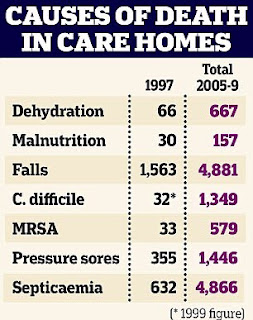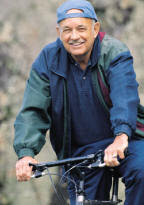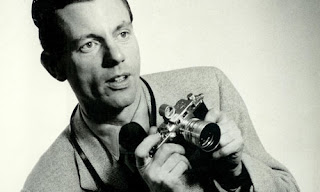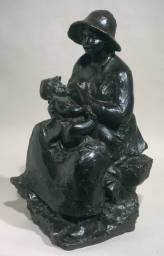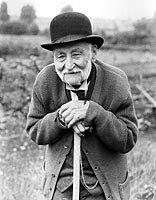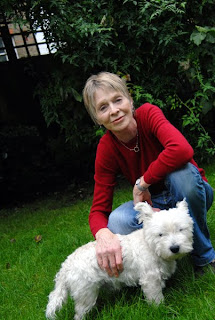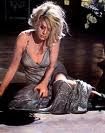
The Guardian journalist Geoffrey Wheatcroft, a post Second World War 1945 'baby boomer' is hard on himself, hard on me and hard all the other 'Baby Boomers' and has declared :
'My generation squandered our golden opportunity. Apparently, those of us who grew up in the 60's had the World at our feet but, despite the 'victory of the West',
we've achieved nothing. And :
* the past two decades have been the most wretched of our lifetime with high promise followed by bitter disappointment.
First the promise :
* the Berlin Wall fell in 1989, the Soviet Union imploded, Eastern Europe was freed, Germany reunited and the West won the Cold War without a shot fired.
* communism was vanquished, liberal democracy and the market economy triumphed throughout Europe and were bound to triumph throughout the world, from the Middle East to Africa to East Asia.
Now, 20 years on, the disappointment :
* Yugoslavia was torn apart and more horrible wars across the World from central Africa to western Asia and Sri Lanka, have killed huge numbers.
* years of 'illusory economic growth' until it turned to bust, or a bustier bust than usual.
Geoffrey quoted and agreed with the late Tony Judt who said :
'My generation has been catastrophic. I was born in 1948 so I'm more or less the same age as George W Bush, Bill Clinton, Hillary Clinton, Gerhard Schröder, Tony Blair and Gordon Brown – a pretty crappy generation, when you come to think of it. It's a generation that grew up in the 1960s in western Europe or in America, in a world of no hard choices.'
His article elicited the following comments from readers :
* Phew, I thought it was just us wasters born in the 60's, who grew up in the 70's, who failed to change the world like we threatened to. Oh well, we can always hope that those born in the 70's, who grew up under Thatcher and Reagan can get their act together. Ah, shit! Too late! They already own and run the world and look at the pig's ear they've made of it...
* Didn't the failures begin before the collapse of the Berlin Wall and the fatuous claim of 'the end of history'. Globalisation, imperialist wars and the destruction of the environment were all visible in the 1960s.
* And now for a bit more self-loathing...
* Goodness, is it really that bad?
* Sir Tim Berners-Lee, Bill Gates and the rest most certainly did not achieve nothing but then technologists and scientists seem not to count in debates like this.
* You achieved 'the defeat of Socialism in the 1980s'.
Hilarious. Did you think that up all on your own? Bless...
'What is less impressive is the backward slide and loss of confidence in the West since then.'
What, you mean the abject failure of capitalism???
* 'If there's any hope at all, it must be that our crappy generation can slink away in shame and let a younger generation see if they can manage things better. They could scarcely do worse.'
But they will. Because they are even more useless. After all, they had your generation as parents.
* Don't be so hard on yourself and your generation, Geoffrey. It's not your fault that Ronnie and the Mad Cow got there first and cocked the whole thing up for you.
* Proper little ray of sunshine you are tonight, aren't you luv?
* You 'defeated Socialism'. The likes of Stalin defeated Socialism long before the 1980s.
* I think this is spot on. All the people I have ever found intellectually, ideologically or morally inspirational on either side of the Atlantic belong to either the generation that grew up in the Great Depression and are now in their '80s-'90s or else to my own generation. The boomers sold us out, and we have to look to the 80 and 90 year olds to give us a model to follow in this new Depression.
* Get a grip mate - go and have a puff on summat and chill out or you wont make it to Big Bang when the US and China stop trading billet dous for gee-gaws.
* I'm only in my early 30's, so in no way a baby boomer. I was however raised by baby boomer parents and I can categorically say that all this talk of how much better the baby boomers had it compared to future generations is a load of old tripe.
* The 50's and 60's where times of genuine poverty. Today's workers enjoy employment laws that our fathers would never have dreamed of, more of us will go to further education than our parents generation and whats more we stand to inherit our parents estates when they finally depart.
* You're not a patch on Nostradamus - you have to be deliberately vague when you're talking inane codswallop if you want to worry people.
* Blair may have been a disaster, but Chamberlain was worse. The recent recession was bad, but not as bad as the Great Depression. Sure, there have been wars, but no World Wars.
Speak for yourself, Geoffrey. Previous generations were not much better and probably a damn sight worse.
* Established careers, more equal education and pay, easy to divorce or not marry, campaigns putting the boot in rape, domestic violence and sexual harassment, easy access to contraception and abortion, free to move around alone, live alone, travel the world, ignore misogynist religious rules, raise children alone, read all sorts of stuff and communicate with hundreds, if not thousands.
Who fixed this for you? : the Baby boomers.
* Erm, let me see. Should I slash my wrists, or drown myself in a water butt full of icy water?
Oh, the agony of choice.
What do I think ? I'll put my money on this last comment from a reader :
* Generations are not mass spawned at regular twenty year intervals, so lending themselves to 'ratings' on what they achieved or failed to do. To some extent 'generations' are mere metaphors for different perceived 'eras', in which the actual mix of power and influence of people of different ages is always a complex continuum. For example, much of the stuff for which 'baby boomers' are blamed, like 'Thatcherism', was the brain child of people born much earlier and continued by people born later.
This old baby boomer as a baby in 1949 :

 The BBC has responded to accusations of 'ageism' by making its erstwhile newsreader, the 63-year-old Julia Somerville, the presenter of 'Weekend News' on BBC1 after an absence of 24 years.
The BBC has responded to accusations of 'ageism' by making its erstwhile newsreader, the 63-year-old Julia Somerville, the presenter of 'Weekend News' on BBC1 after an absence of 24 years.
